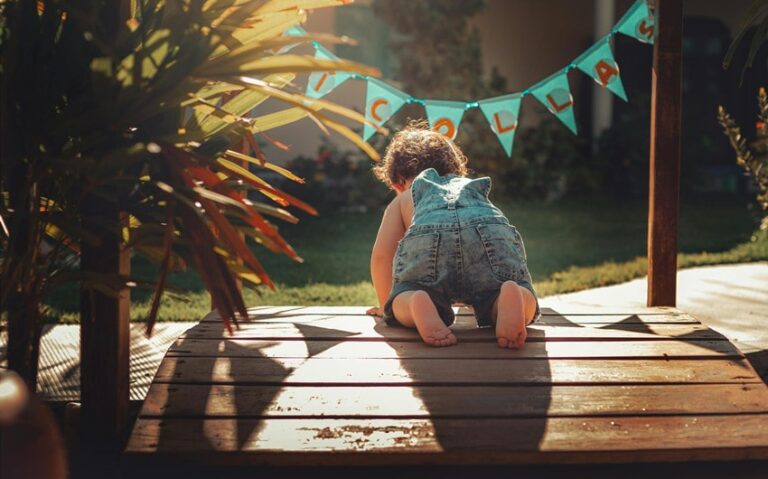The Lost Art of Being Where You Are
It’s strange how often you can be somewhere and not really be there at all. You sit in a room and your mind travels three time zones away. You walk through a quiet park, but your thoughts race louder than your steps. You talk with someone you love, but your attention hovers behind your eyes like it’s waiting for something else to load.
Presence used to be the default. Now, it feels like a discipline. A skill. A lost art. And I wonder what it might mean—for me, for all of us—to reclaim it.
What It Means to Be Present
Presence is not performance. It’s not about stillness or silence or getting everything “right.” It’s about being fully available to the moment in front of you. That might mean being emotionally open, physically aware, or simply conscious of your surroundings in a way that feels whole.
But modern life doesn’t invite this kind of presence easily. Our attention is fractured across screens, notifications, plans, and what-ifs. We’re told to multitask. To optimize. To always be somewhere else: checking in, checking out, checking our phones.
So presence becomes a radical act. An act of resistance. A return.
The Cost of Absence
It’s easy to overlook what we lose when we aren’t truly present. But the absence compounds.
We miss our own lives in real-time. The color of the sky as it shifts at 7:43pm. The look in someone’s eyes when they’re saying something they don’t quite know how to say. The way your body feels when you’re not bracing against the next thing.
We also miss the feedback loop that presence gives us. Being here helps you know yourself better. You notice your reactions, your habits, your patterns of escape. You learn where your mind goes when it’s uncomfortable—and what it takes to gently bring it back.
My Own Disconnection
There was a season of my life when I lived on autopilot. Wake, work, scroll, sleep. Every moment had a background hum of half-distraction. Even when nothing urgent was happening, I felt pulled—like my attention was a balloon tied to someone else’s wrist.
In conversations, I’d start planning my reply before the other person finished their sentence. In quiet moments, I’d reach for my phone like a reflex. I wasn’t unhappy, but I wasn’t really alive in those moments either. I was elsewhere. Always elsewhere.
And the strange part? No one noticed. Because everyone else was doing it too.
The Turning Point
It wasn’t one big wake-up moment. It was smaller than that—something I couldn’t ignore. One night, I was washing dishes while listening to a podcast, texting a friend, and mentally outlining a blog post I hadn’t started. I dropped a glass. It shattered. And for one sharp moment, I was 100% there.
I felt the water running. I felt my heartbeat spike. I saw the shards scattered across the floor. No multitasking, no mental tabs. Just me and the moment, messy and real.
That moment didn’t fix anything. But it reminded me what it felt like to be truly present. And I wanted more of it.
Practicing Presence (Imperfectly)
Since then, I’ve been practicing. Not mastering—just practicing. These are some ways I’ve been re-learning the lost art of being where I am:
- Single-tasking on purpose. If I’m walking, I walk. If I’m eating, I eat. No scrolling. No filling the silence.
- Pausing before I speak. It sounds small, but those two seconds change everything. I actually listen. I actually respond.
- Looking out the window instead of into a screen. This is my version of meditation. Just looking and noticing.
- Letting things take their time. I try to do one thing slowly every day—like making tea, folding laundry, or writing a paragraph that doesn’t rush.
- Asking myself, “Where are you?” when I feel scattered. The answer is often, “Not here.” And that’s enough to pull me back.
Presence Doesn’t Always Feel Good
One of the reasons we avoid the present is because it isn’t always pleasant. When you slow down and really pay attention, you feel everything. Not just the sunlight and birdsong, but the ache in your chest, the tension in your jaw, the uncertainty under the surface.
But that’s part of it. Presence doesn’t mean comfort. It means honesty. It means being with what is, even when it’s raw or boring or incomplete. Especially then.
Some days, I don’t want to be where I am. But I’ve learned that pretending I’m somewhere else only makes things harder. Denial is exhausting. Presence is the beginning of peace.
The Gift of Being Where You Are
What I’ve discovered—slowly, imperfectly—is that presence gives back more than it takes. When I show up fully to the moment I’m in, I experience it more richly. I feel more connected to people, more honest with myself, more anchored in the world.
I notice beauty I used to miss: the way a friend’s voice dips when they’re unsure, the smell of the air before rain, the quiet hum of my own breath at the end of the day.
It’s not that life becomes extraordinary. It’s that the ordinary stops being invisible.
A Quiet Invitation
If you’re reading this and your mind is already on the next tab or the next thing—that’s okay. There’s no judgment here. Just a quiet invitation:
Come back.
Come back to the room you’re in.
To the sound of your own breath.
To the weight of your body in your chair.
To the light falling across the floor.
To the moment you’re already inside.
Being where you are isn’t easy. But it’s always worth it.
Presence is not a performance. It’s a practice. And every moment is a chance to begin again.
— Ann Sims







